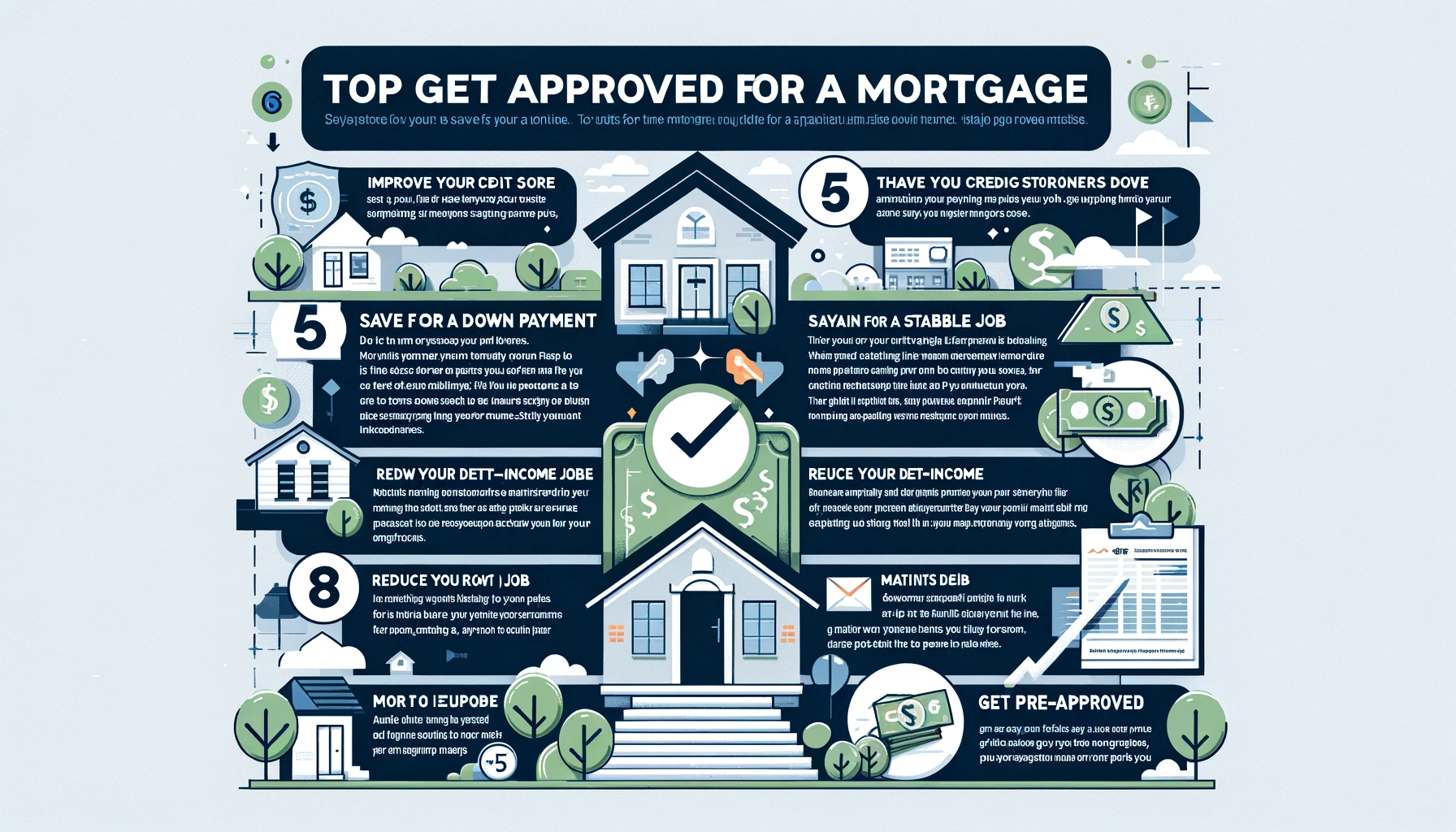Are you looking to save some extra cash on your mortgage payments? Whether you’re a first-time homebuyer or a seasoned homeowner, finding ways to cut down on those monthly expenses can make a significant difference in your financial well-being. In this blog post, we’ll explore valuable tips and insights on how to save money on your mortgage payments while also understanding the ins and outs of this crucial aspect of homeownership. Let’s dive in and learn how to optimize your mortgage for maximum savings!
Tips for Saving Money on Your Mortgage Payments
Looking to trim down your mortgage costs? Consider making extra payments toward your principal balance each month. Even a small additional amount can significantly reduce the interest you pay over the life of the loan.
Refinancing your mortgage at a lower interest rate can also lead to substantial savings. Be sure to shop around and compare offers from different lenders to secure the best deal possible.
Another tip is to avoid private mortgage insurance (PMI) by aiming for a down payment of at least 20% when purchasing a home. This can help you steer clear of unnecessary monthly insurance premiums.
Additionally, staying on top of your credit score and maintaining good financial health can open doors to better mortgage terms and lower interest rates. Keep an eye on your credit report and work towards improving any areas that may be affecting your score negatively.
Mortgage Loan Basics
When it comes to purchasing a home, understanding the basics of a mortgage loan is crucial. Essentially, a mortgage is a type of loan specifically used to buy real estate. It allows individuals to borrow money from lenders like banks or credit unions in order to purchase a property.
Mortgages typically consist of principal (the amount borrowed) and interest (the cost of borrowing the money). The borrower agrees to repay this amount over an agreed-upon period, usually 15-30 years. Interest rates can be fixed (staying the same throughout the loan term) or adjustable (changing periodically).
Before getting approved for a mortgage, lenders will assess your credit score, income, employment history, and other financial details. This evaluation helps determine how much money you can borrow and at what interest rate.
Understanding these basic concepts will set you on the right path towards making informed decisions when navigating through the world of mortgages.
Repaying the Mortgage
One of the most significant aspects of homeownership is repaying the mortgage. It’s essential to understand how your monthly payments are structured and what strategies you can use to save money in the long run.
When repaying your mortgage, consider making additional principal payments whenever possible. By doing so, you can reduce the amount of interest you pay over time and shorten the life of your loan.
Another way to save on mortgage payments is by refinancing at a lower interest rate if market conditions are favorable. This could potentially lower your monthly payments and overall loan costs.
Additionally, setting up bi-weekly instead of monthly payments can help you pay off your mortgage faster while reducing the total amount of interest paid over the life of the loan.
Remember, every little bit counts when it comes to repaying your mortgage early and saving money in the process. It’s worth exploring different repayment strategies that suit your financial goals and lifestyle.
Types of Mortgages
When it comes to mortgages, there are various types to choose from based on your financial situation and long-term goals. One common type is the fixed-rate mortgage, where the interest rate remains the same throughout the loan term. This provides stability in monthly payments.
On the flip side, adjustable-rate mortgages (ARMs) have interest rates that can fluctuate after an initial fixed period. While they may offer lower initial rates, there’s a risk of increased payments down the line.
Government-insured loans like FHA and VA loans cater to specific groups such as first-time homebuyers or veterans with more lenient requirements. Jumbo loans exceed conforming loan limits for high-cost areas.
It’s crucial to understand each type of mortgage before making a decision that aligns with your financial objectives and lifestyle.
Mortgage Process
The mortgage process can seem overwhelming, but understanding the steps involved can make it more manageable.
First, you’ll need to apply for a mortgage loan with a lender. They will review your financial information and determine how much they are willing to lend you.
Once approved, you’ll sign a lot of paperwork detailing the terms of your loan, including interest rates and repayment schedules.
After signing the documents, the lender will provide funds for purchasing your home or refinancing an existing property.
Remember that throughout this process, it’s important to stay in touch with your lender and ask any questions you may have about the terms of your mortgage agreement.
Average Mortgage Rates
Average Mortgage Rates can play a significant role in determining how much you pay over the life of your loan. These rates fluctuate based on various factors such as economic conditions, inflation rates, and lender policies. It’s essential to stay informed about current average mortgage rates to make informed decisions when shopping for a loan.
The average mortgage rate is the rate at which banks and lenders are currently offering mortgages to borrowers. This rate serves as a benchmark for comparing different loan options available in the market. By keeping an eye on the average mortgage rates, you can gauge whether it’s a good time to lock in a rate or wait for potential fluctuations.
Factors like credit score, down payment amount, and loan term can also influence the interest rate you receive compared to the average. Understanding these dynamics can help you navigate through the process of securing a favorable mortgage rate that fits your financial goals and capabilities.
Keep track of average mortgage rates through reliable sources like financial websites or consulting with lending professionals who can provide insights into market trends affecting borrowing costs. Being proactive and well-informed will empower you to make strategic choices when it comes to managing your mortgage payments effectively.
How to Compare Mortgages
When it comes to comparing mortgages, it’s essential to do your research and shop around for the best rates. Start by looking at the interest rates offered by different lenders – even a slight difference can save you money in the long run.
Consider the loan term as well. A shorter term may have higher monthly payments but could save you thousands in interest over time. On the other hand, a longer-term loan may offer lower monthly payments but end up costing more overall.
Don’t forget about fees and closing costs associated with each mortgage option. These additional expenses can add up quickly, so be sure to factor them into your comparison.
Take into account any special features or benefits that come with each mortgage, such as flexible repayment options or cashback incentives. weigh all these factors carefully before making a decision on which mortgage is right for you.
Why Do People Need Mortgages?
For many people, purchasing a home is a significant milestone in their lives. However, the reality is that most individuals do not have enough cash on hand to buy a property outright. This is where mortgages come into play.
Mortgages offer an opportunity for individuals to own homes by spreading out the cost over several years through monthly payments. It allows people to invest in real estate without having to wait years to save up enough money.
Furthermore, mortgages provide financial flexibility by allowing homeowners to allocate their funds towards other investments or expenses rather than tying up all their savings in one asset.
Another reason why people need mortgages is that they can potentially benefit from tax deductions on mortgage interest payments, making it a financially savvy decision for many homeowners.
Mortgages serve as a gateway for individuals to achieve the dream of homeownership while managing their finances effectively.
Understanding Your Mortgage Situation
Understanding your mortgage situation is crucial when it comes to managing your finances effectively. It involves knowing the terms of your loan, including interest rates and repayment schedule. By understanding these details, you can make informed decisions about how to best tackle your mortgage payments.
Take a closer look at your budget to see how much you can comfortably allocate towards your monthly mortgage payment. This will help you determine if there are areas where you can cut back on expenses to free up more funds for your mortgage.
Consider the current market conditions and how they may impact your mortgage rate. Being aware of potential fluctuations in interest rates can help you plan ahead and possibly take advantage of refinancing opportunities to save money.
Keep track of any changes in your financial situation that may affect your ability to meet your mortgage obligations. Staying proactive and addressing any issues early on can prevent larger problems down the line.
Staying informed and actively managing your mortgage situation will put you in a better position financially and ensure a smoother path towards homeownership.
Legal Details and Regulations
When it comes to mortgages, legal details and regulations play a crucial role in ensuring that both the lender and borrower are protected. These aspects are put in place to establish guidelines for how mortgage agreements should be structured and executed.
Legal documents such as the promissory note and deed of trust outline the terms of the loan, interest rate, repayment schedule, and consequences of default. It’s important for borrowers to carefully review these documents before signing to fully understand their obligations.
Regulations set by government entities like the Consumer Financial Protection Bureau (CFPB) aim to prevent predatory lending practices and ensure transparency in the mortgage process. Compliance with these rules helps safeguard consumers from unfair treatment.
Understanding your rights as a borrower under these laws can empower you to make informed decisions when obtaining a mortgage. Working with reputable lenders who adhere to legal requirements can provide peace of mind throughout your homeownership journey.
Saving Money on Mortgage Payments
By implementing these tips for saving money on your mortgage payments, you can take control of your financial well-being and make significant strides towards a brighter future. Remember, understanding the basics of mortgage loans and exploring different types of mortgages can help you choose the right option that suits your needs. Be sure to compare mortgage rates thoroughly to ensure you’re getting the best deal possible.
Furthermore, staying informed about legal details and regulations surrounding mortgages is crucial in safeguarding your interests. By actively managing and repaying your mortgage responsibly, you can also work towards reducing long-term costs.
By being proactive and strategic in managing your mortgage payments, you can save money over time while securing a stable foundation for homeownership. Keep these tips in mind as you navigate the complex world of mortgages – it’s an investment worth making!f


